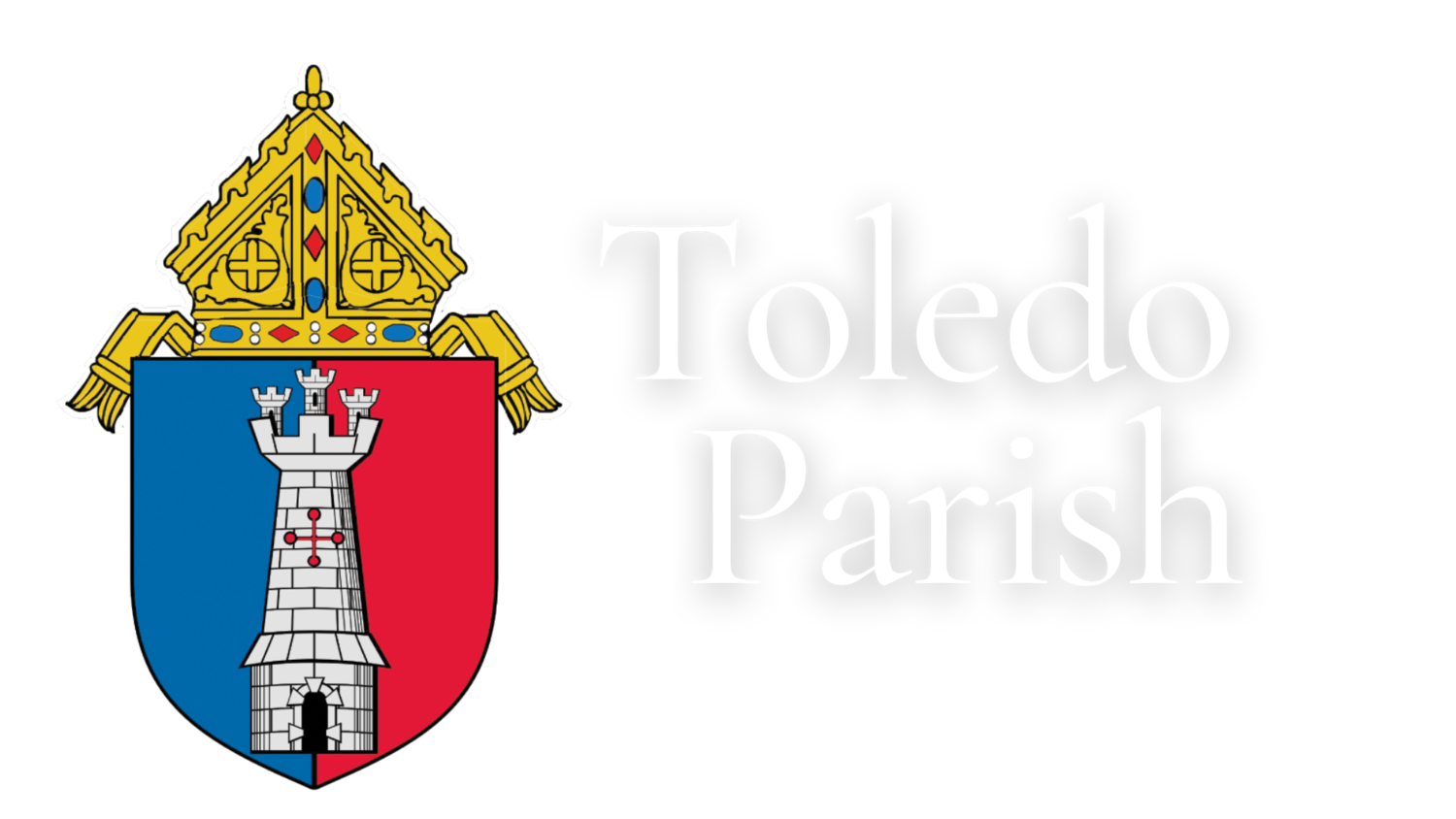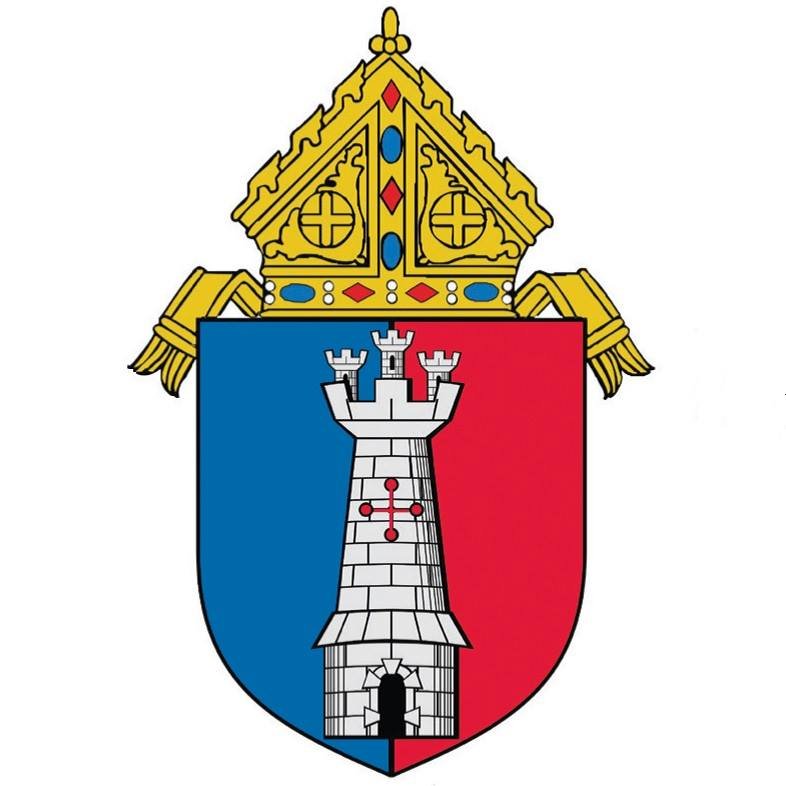Sacrament Preparation
Contact
Mr. Kyle Kubik | Senior Director Catholic Education - kkubik@tolediocese.org
Resources
Sacramental Norms
Norms for Catechesis & Sacramental Preparation (5/22)
Sacramental Norms Appendix A - Sacraments of Initiation Policy (12/16)
Sacramental Norms Appendix B - Age of Confirmation (7/17)
Sacramental Norms Appendix C - Sacramental Catechesis (USCCB 2012)
Sacramental Norms Appendix D - Preparation for Confirmation Liturgy (3/15)
Sacramental Norms Appendix E - Guide for Persons with Disabilities (USCCB 2017)
Sacramental Norms Appendix F - Required Teachings & Competencies (5/22)
Sacramental Norms Appendix G - Baptismal Register Policy (9/20)
Sacramental Prep for Students with Disabilities
To provide sacramental support to a student with disabilities, prioritize individualized instruction, use adapted materials like visuals and simple language, collaborate closely with the student's family and caregivers, and modify the sacramental preparation process to suit their specific needs and abilities, ensuring they can participate meaningfully in the sacraments while feeling welcomed and included in the faith community. This may involve adjusting the pace of learning, utilizing sensory aids, and offering alternative ways to express faith depending on the disability type.
Key elements to consider
Individualized approach
Understand the specific needs of the student's disability and tailor the sacramental preparation accordingly.
Communication with family
Work closely with parents or guardians to gain insights into the student's abilities, preferred learning methods, and any concerns they might have.
Visual aids and simplified language
Utilize pictures, diagrams, and simple language to explain complex concepts related to the sacraments.
Ensure written communications use large, easy to read fonts, simplified language, and screen-reader-friendly formats.
Sensory integration
Incorporate sensory activities like touch, smell, and sound to enhance understanding and engagement.
Offer “sensory-friendly” Masses for people with autism or sensory processing disorders, which may include lower lighting, reduced noise, and a more relaxed environment.
Adapted curriculum
Modify the standard sacramental curriculum to fit the student's cognitive level and learning style.
Use Loyola Adaptive Sacramental Preparation Kits for children making Holy Eucharist, Reconciliation and/or Confirmation.
Preparation
Assess the student using the Individual Religious Education Plan. It will provide valuable information regarding the child’s medical history, diagnoses, learning style, family goals, etc. Much of the content will require parental involvement.
Work with the student and family to anticipate what support might be needed for the student to succeed in the typical classroom environment.
Ask for a copy of the student’s general education IEP, especially where goals and challenges are addressed. Recommendations/suggestions there may be used and/or adapted in the religious education setting.
Focus on students’ shared similarities rather than differences when preparing the class.
Encourage participation by reinforcing the inclusivity and sense of belonging for all children in the church community regardless of their strengths, weaknesses, challenges, or disabilities.
Provide support for children with special needs in regular education classrooms; in a sacramental year reach out to Accessibility Ministries for Loyola Press Adaptive Sacramental Preparation Kits, if your parish does not have these resources. These kits for Holy Eucharist, Reconciliation, and Confirmation are available through the generous donations to the Annual Catholic Appeal.
Be inclusive, invite children with special needs to participate in events, Masses, social, and recreational activities. Not everyone can do everything, but everyone can do something.
Be a role model for your students by showing compassion, patience, acceptance, and understanding for children with varying ability levels.
Trust and pray that God will give you grace in ministering to children with disabilities.
Positive reinforcement
Use praise and encouragement to support the student's progress and participation.
Accessible environment
Ensure the learning space is physically accessible and free from distractions.
Use multiple instructional methods that are accessible to various learning styles (e.g., lecture and small group discussions, visual aids and hands-on activities).
Specific examples of sacramental support for different disabilities
Students with intellectual disabilities
Use repetitive practice and concrete examples to reinforce concepts.
Break down complex prayers into smaller phrases.
Employ visual cues and gestures to aid understanding.
Students with hearing impairments
Utilize sign language interpreters.
Provide written materials and visual aids.
Incorporate tactile experiences where appropriate.
Students with visual impairments
Use large print materials and tactile objects.
Provide verbal descriptions of visual elements.
Incorporate auditory elements in the learning process.
Additional Considerations
Respectful language
Always use respectful language and avoid labels when discussing the student's disability.
Collaboration with specialists
Consult with special education teachers, therapists, or other professionals to gain further insights and support.
Partner with disability advocacy groups and local organizations to provide additional resources and support to parishioners.
Inclusion in the community
Encourage the student to participate in regular parish activities and celebrations whenever possible.
Create or promote support groups for individuals with disabilities and their families within the parish, offering a space for spiritual, emotional, and practical support.
Form a disability ministry or inclusion committee to advocate for the needs of parishioners with disabilities and ensure ongoing improvements in accessibility.
Available Resources
Loyola Press Adaptive Sacramental Preparation Kits https://www.comcenter.com/product/LOYO-ENGKITS
USCCB Guidelines for the Celebration of the Sacraments with Persons with Disabilities https://www.usccb.org/committees/divine-worship/policies/guidelines-sacraments-persons-with-disabilities
Individual Religious Education Plan file:///W:/Persons%20with%20Disabilities/Accessibility/Individual%20Religious%20Education%20Plan.pdf
How to Welcome, Include, and Catechize Children with Autism and Other Special Needs, Lawrence R. Sutton, PH.D, Loyola Press 2013.
BE OPEN! A Guide to Prayerful Reflection on Inclusion in Catholic Schools, Doreen Engel, National Catholic Education Association 2019.
Mrs. Lynn Priest | Accessibility Ministries Specialist- lpriest@tolediocese.org
Other Formation Opportunities
Catechesis of the Good Shepherd - Contact Karen Momenee at kmomenee@aol.com to learn about opportunities for getting trained to teach Catechesis of the Good Shepherd Levels 1 and 2.
Saint John Bosco Conference with Steubenville Conferences July 11-14, 2022 –https://steubenvilleconferences.com/events/sjb/
Dragon Slayers- First Reconciliation and First Communion Retreats for students and their parents. https://www.saintsinthemaking.com/dragon-slayers.html
SanctifEYEd Retreats- Confirmation Retreats for students and parents who have gone through the Dragon Slayers program.
Decision Point Confirmation Retreat - Damascus Mission Camp, Centerburg, Ohio - https://damascus.net/programs/youthretreats/confirmation-retreat/
NET Retreats - https://netusa.org/retreatthemes/
Looking for something else?
Make a suggestion.
Can’t find what you are looking for? Let us know so we can help you find it or add it if its missing.


